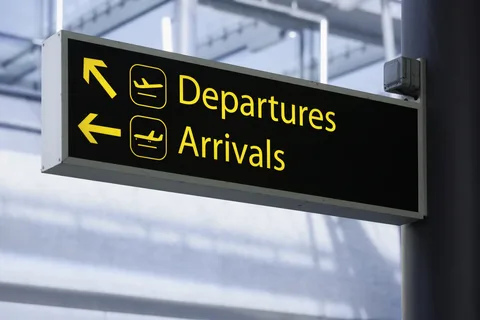In a major policy shift, the United Kingdom has widened its controversial “deport now, appeal later” rule to cover 23 countries, nearly tripling the previous list. This expansion includes major nations such as India, Australia, and Canada, alongside others across Africa, Asia, Europe, and the Caribbean.
The policy—officially introduced as part of immigration law reforms—allows the UK to remove certain foreign nationals before their appeal against deportation is heard. In other words, if your case is refused, you could be put on a flight home, and you’ll have to fight your case from abroad instead of inside the UK.
Supporters say it’s a way to speed up removals and prevent abuse of the appeals process. Critics argue it risks denying people a fair hearing. Whether you agree with it or not, one thing is certain—if you or someone you know falls under this category, the rules have changed, and the stakes are high.
What Exactly Is “Deport Now, Appeal Later”?
Under this policy, once the Home Office refuses your human rights claim or rejects your challenge to a deportation order, they can certify your case so that your appeal can only be made from outside the UK.
In simple terms:
You lose the right to stay in the UK while waiting for your appeal hearing.
You will be deported first.
If you still want to fight the decision, you must do so from your home country.
The UK says this is aimed at foreign offenders and certain immigration cases where they believe a person is trying to delay removal through drawn-out legal challenges.
The Countries Now on the List
Before now, only a handful of countries were part of this arrangement. The expansion means it now covers 23 countries.
While the UK hasn’t publicly released the full official list in one announcement, from the government’s statements and immigration updates, the expanded list includes:
India, Australia, Canada, Angola, Botswana, Brunei, Bulgaria, Guyana, Indonesia, Kenya, Latvia, Lebanon, Malaysia, Uganda, Zambia
These are in addition to countries already covered before the expansion, such as:
Nigeria, Albania, Mauritius, Tanzania, Estonia, Finland, Belize, Kosovo
Together, they make up the 23 nations whose citizens can now be removed before their appeal is heard.
Why Is the UK Doing This?
The official reasoning is straightforward — the government says too many foreign nationals, particularly those convicted of crimes, are using the appeals process to remain in the UK for months or even years after their cases have been decided.
According to UK officials:
The longer people remain in the UK after losing their case, the harder and more expensive it is to remove them.
In some cases, offenders re-offend while waiting for their appeal.
Speeding up removal reduces pressure on prisons, immigration detention facilities, and court backlogs.
The government’s message is clear: justice delayed is justice denied — for victims, taxpayers, and the system as a whole.
Why Critics Are Concerned
While the policy looks efficient on paper, it raises serious concerns among immigration lawyers, human rights campaigners, and even some MPs. The main issues are:
Access to Justice
Fighting an appeal from outside the UK is far more difficult. You lose face-to-face contact with your lawyer, access to key documents, and the ability to appear physically in court.Family Separation
For those with children, spouses, or other dependents in the UK, being removed before an appeal can cause lasting emotional and financial damage.Risk of Mistakes
If the Home Office gets a decision wrong — and they sometimes do — the damage is done once the person is deported. Even if the appeal later succeeds, reversing that situation can be complex or impossible.Fair Trial Principles
Remote hearings are not always a perfect substitute for in-person proceedings, especially when credibility and witness testimony are central to the case.
How the Process Works Step-by-Step
Here’s what typically happens in a “deport now, appeal later” case:
Home Office Decision – They reject your claim or order deportation.
Certification – They decide your appeal can only happen from abroad.
Removal Arrangements – You’re given notice, and removal is scheduled quickly.
Deportation – You’re sent back to your home country.
Remote Appeal – If you still appeal, you attend the hearing via video or phone from abroad.
Outcome – The court either overturns the Home Office decision or upholds it.
It’s a fast-track process, and the timeline between steps 1 and 4 can be very short.
Who Is Most Affected?
Foreign nationals convicted of crimes in the UK who have finished their prison sentences.
Migrants whose human rights claims are refused but are from one of the 23 listed countries.
People relying on family or private life claims under Article 8 of the European Convention on Human Rights — the UK is tightening these as well.
If you fall into any of these categories and you’re from a listed country, your risk of being removed before appeal is much higher.
Can You Stop a “Deport Now, Appeal Later” Order?
In some cases, yes — but it’s not easy.
You or your lawyer would need to show:That removal before appeal would cause serious and irreversible harm.
That you have compelling reasons why your case cannot be fairly heard from abroad.
That there are urgent legal or health grounds preventing immediate removal.
In some situations, urgent court injunctions have been used to stop deportations until an in-country appeal is heard, but these are rare and require strong evidence.
The Likely Impact
Faster removals of foreign offenders.
More remote hearings in UK immigration tribunals.
Greater pressure on legal teams to prepare appeals in a shorter time.
Potential for wrongful deportations if mistakes aren’t caught quickly.
For migrants and their families, the expansion means there is less time to act and fewer opportunities to fight removal from inside the UK.
What You Should Do If You’re at Risk
Seek Legal Advice Immediately – Don’t wait until removal papers arrive.
Gather Evidence Now – Proof of family ties, medical issues, community involvement, or risk on return can be critical.
Stay Informed – Know your rights under UK immigration law, especially section 94B of the Nationality, Immigration and Asylum Act.
Plan for Remote Hearings – If you are removed, have a strategy for staying in touch with your legal team.
This policy shift is not just about immigration — it’s about the UK’s overall approach to law, justice, and international cooperation. Supporters see it as a necessary step to maintain public trust in the immigration system. Opponents view it as a shortcut that risks fairness in the name of efficiency.
What’s certain is that more countries could be added to the list in the future, and the debate over “deport now, appeal later” is far from over.
Pro Tip
If you or someone close to you could be affected by this policy, start preparing your defence before the Home Office makes its move. Once a removal date is set, the clock moves fast. Many people lose their chance to gather key documents or coordinate witnesses because they waited too long.
The expansion of the UK’s “deport now, appeal later” policy marks a decisive moment in immigration enforcement. For some, it’s a welcome sign that the government is taking control of its borders and acting quickly against those who break the law. For others, it’s a worrying precedent that could strip people of their right to a fair hearing.
If you’re from one of the 23 listed countries, the message is simple, don’t wait until it’s too late. The rules have changed, and in this fast-moving system, preparation isn’t just important, it’s everything.
- Click To Read More

